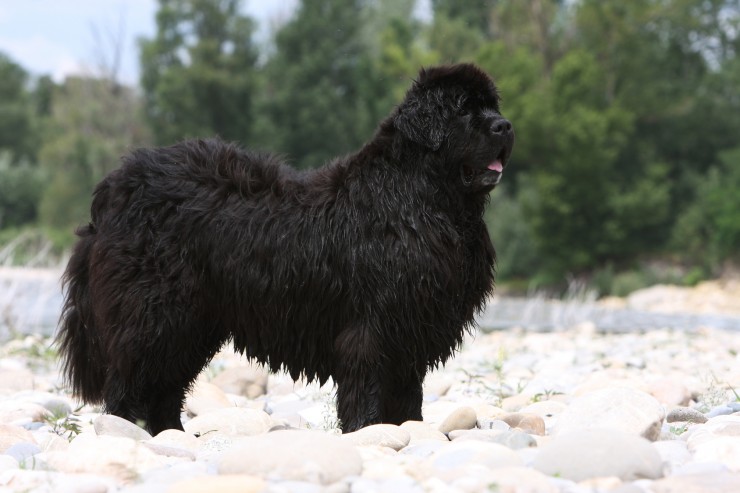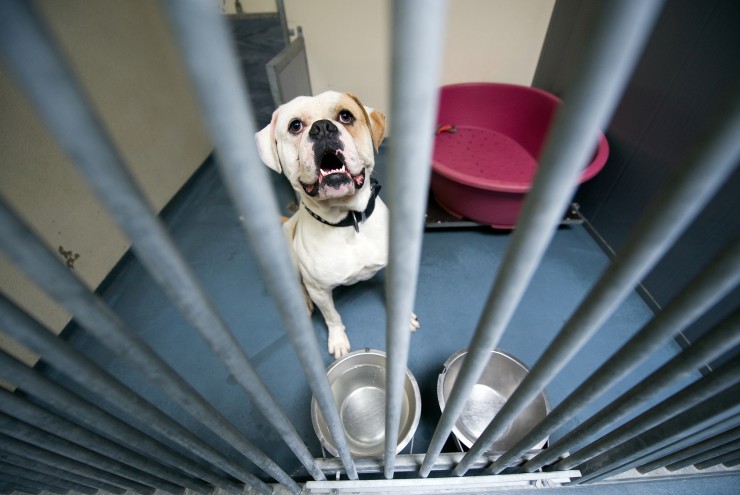

Is it possible our best friend holds the answers to curing cancer? Maybe our dog can not cure cancer but there is evidence that the family pet is able to detect lung and other cancers through smell .
We have know for a long time that our pets can tell when something is wrong with us. They are very tuned in to their masters. I am sure at some point you have had a bad day or are just feeling down. No doubt you have noticed how your pooch will come and sit by you. It seems as if they are really trying to make you feel better. This is most likely where our furry friends got the handle of being man's best friend.
For centuries we have breed our dogs in such a way as to pronounce their already present ability to smell. It is common knowledge that dogs are breed to hunt and over time we have realized our canine friends have the ability to find explosives, drugs and even people. The reason for the dogs heightened sense of smell is they possess 200,000 million olfactory cells while humans only have five million.
We have known for several years about the dogs ability to warn of an oncoming seizure in epileptic patients. Some trainers think that dogs sense changes in human behavior or they may pick up on a scent that warns the owner, giving them time to take precautions.
It seems that our pets are even more valuable than many of us could have imagined They may even have the ability to save our lives.. New studies show that certain deadly illnesses like cancer may be diagnosed by the family pet long before a physician is ever contacted. The reason for this is that dogs can smell certain compounds which humans can not. We have always known about the dogs keen sense of smell but until recently we were unaware of the full potential our pooch's sensitive snout may have.
Since 2004 training and research have taken place to confirm the dogs ability to detect cancer cells. In a more recent 2011 study done by German researchers it was found that through breath samples dogs were able to detect seventy-one positive reads out of the one-hundred volunteers who were positive for lung cancer. The dogs were also able to identify three-hundred and seventy-two out of four hundred who were negative for lung cancer. Although not a one-hundred percent find it was impressive none the less.
This is very exciting news showing capabilities which our best friend has possessed all along. Although we may not look forward to a canine sniff test at our fifty plus physical screening, it is quite likely this information will lead to the development of some type of an artificial sniffer, one more practical for use in medical offices. In light of these recent findings maybe we should all give Rover an extra belly rub and treat!
 Eight Things That Cost More The Larger Your Dog Is
Eight Things That
Eight Things That Cost More The Larger Your Dog Is
Eight Things That
 Why Some Pet Foods Are Recalled From Markets
Why Some Pet Foods Are Recalled From Markets
A
Why Some Pet Foods Are Recalled From Markets
Why Some Pet Foods Are Recalled From Markets
A
 Seven Top Tips For Kennel Boarding A Dog That Suffers From Separation Anxiety
Seven Top Tips Fo
Seven Top Tips For Kennel Boarding A Dog That Suffers From Separation Anxiety
Seven Top Tips Fo
 Why Might An Otherwise Good Dog Bite Their Owner?
Why Might An Othe
Why Might An Otherwise Good Dog Bite Their Owner?
Why Might An Othe
 Miniature Poodle Hereditary Health And Health Testing
Miniature Poodle
Miniature Poodle Hereditary Health And Health Testing
Miniature Poodle
Copyright © 2005-2016 Pet Information All Rights Reserved
Contact us: www162date@outlook.com